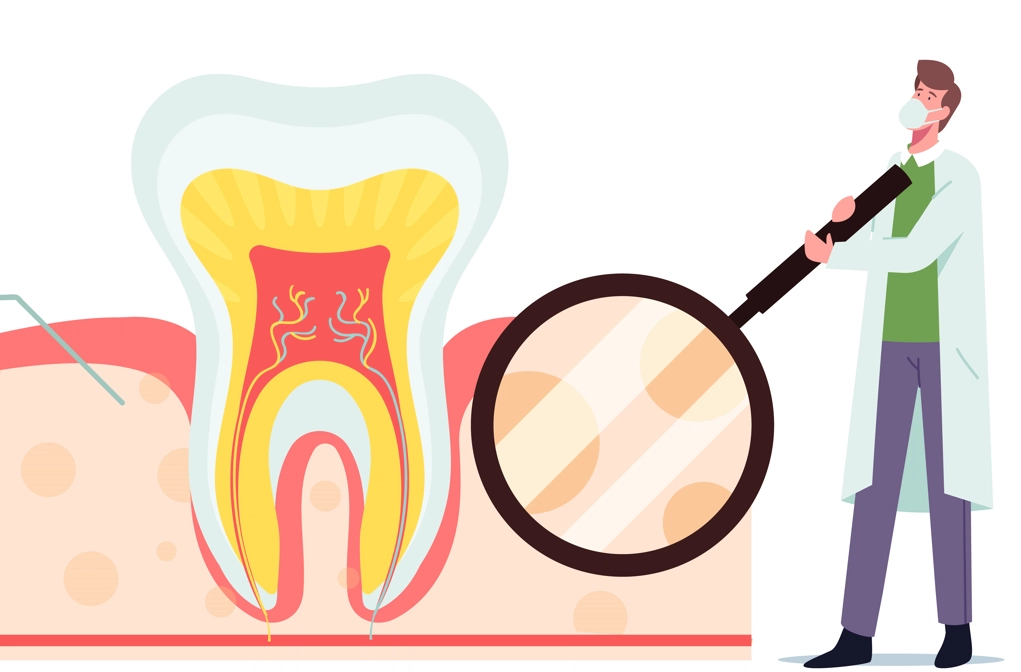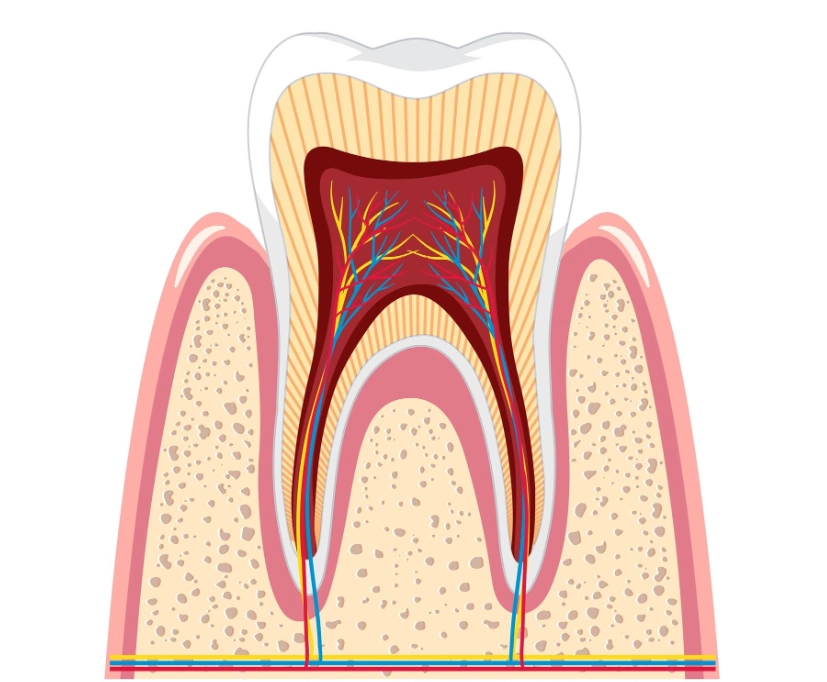🦷 How to Tell If You Need a Root Canal?

A root canal treatment is commonly associated with a scary and intensive process, but in reality, it is the most effective way to save a tooth that has been severely infected or damaged. Unfortunately, it often happens that people delay visiting a dentist, failing to realize that their toothache, sensitivity, or swelling may be the result of a deeper infection. Therefore, how does one understand that his/her case is a root canal matter? The symptoms and some of the dental signs that you can go through with your dentist will be our focus for the process of coming to a mutual decision.
Today’s article will outline the key reasons why a tooth cannot be treated without a root canal, the warning signals that it might give you, and discuss the use of a crown as a necessity after the treatment.
When Do You Need a Root Canal?
The root of the tooth might get infected or inflamed if the pulp tissue inside it becomes infected. The tooth’s pulp is the tiny tissue that contains its blood vessels and nerves, which, when it is in a bad condition, can make the patient experience extremely severe pain or undergo abscess development.
These tell-tale signs of a probable root canal need generally include the following symptoms:
- Severe pain that does not subside, especially during eating or using pressure
- Uneasy feelings on hot or cold exposure, sometimes even when the pain trigger is taken away
- Unusual swelling in the gums or pus collection accompanied by a pain-relieving bump near the tooth
- A tooth root that is getting darker or changing color
- The core pulp of a tooth is shown through a crack or chip
Through X-ray and pulp vitality tests, your dentist will double-check the guess of a root canal to be sure of the accurate picture of the teeth’s health.
Why Do You Need a Root Canal?
When the innermost, sensitive tissue (pulp) is permanently damaged, the part in question is simply removed by root canal treatment. This usually happens if there has been substantial decay or an extensive infectious process in the pulp tissue.
- Deep decay that has reached the nerve
- Repeated dental procedures on the same tooth
- Cracks or trauma that expose the pulp
- Untreated cavities that have spread below the enamel and dentin
When an infected tooth nerve remains untreated, the bacteria in the pulp chamber could spread through the tooth and enter the jawbone or the bloodstream, thus leading to serious health issues. The process of a root canal removes the inflamed tissue, disinfects the tooth canals and seals the tooth to prevent any future infections.
In other words, the reasons for having a root canal are: getting rid of the toothache, eliminating, so to speak, the infection, and saving your natural tooth.
Do I Need a Crown After a Root Canal?
Quite often, a dental crown must be put over the tooth after a root canal, usually the case with back teeth (molars and premolars) that are the most susceptible to wear and tear from chewing.
After the tooth’s pulp is removed during a root canal, the tooth is often left weak and prone to fracturing as the blood supply is cut off. A crown is beneficial in the following ways:
- It is a good idea to keep the tooth from breaking
- It restores the tooth’s normal chewing surface
- It stops re-infection from happening
- It improves the appearance of your teeth, especially if they change color
Most dentists advise that a crown be placed as soon as possible after a root canal (2–4 weeks) to ensure the effectiveness of the procedure in the long run.
Do All Root Canals Need Crowns?
It is rare that every tooth has a root canal and needs a crown; however, in most cases, this is usually the situation. The decision to have a crown is usually made based on factors such as:
- It is a place where a tooth is located (almost all of the back teeth are crowns)
- The number of natural dental structures that remain
- The level of the tooth’s aesthetics (e.g., anterior teeth (front teeth) are, in most cases, filled only)
- FACTOR 2:
For the front teeth or canines, where the pressure from chewing is less, a tooth colored filling that is very strong might be the right option, especially when the tooth is still fully intact. On the other hand, for the posterior teeth or teeth in a state of decay, a tooth cap is usually suggested as the best solution.
Do You Always Need a Crown After a Root Canal?

Though there are situations when it is not obligatory, in most cases, a cap is still highly recommended, particularly if you want to conserve the tooth for quite a long time.
One easy principle to follow:
- YES – If it’s a molar, premolar, or tooth with significant loss of structure
- MAYBE – If it’s a front tooth with minimal damage and no cosmetic concerns
- NO – Only in rare cases, such as baby teeth or fully intact incisors with minor root issues
It’s sensible to weigh the pros and cons with your dentist and pick the most suitable type of dental restoration after your root canal treatment. Always keep in mind that with proper upkeep, a crown is capable of saving your treated tooth for an ultimate many-year period.
Conclusion:
The knowledge of when to get a root canal can prevent severe dental complications and become the savior of your natural teeth. Be it severe pain, some swelling, or even a mere thought that it is not all right, fast diagnosis and treatment could be the whole game-changer. Plus, not all the cases of root canals demand crowns; still, most of them truly stand the test of time and improve the resistance and long-term activity if anything should be added for security.
Frequently Asked Questions About Root Canal Need
Your dentist might recommend a root canal treatment if you experience excruciating tooth pain, intolerable hot and cold sensations, and have noticed swelling near the tooth. A dental check-up and imaging are indispensable to definitively detect the pulp infection or injury inside the tooth.
The inner pulp of the tooth is irritated or infected by deep decay, cracks, or trauma, and therefore, a root canal becomes necessary. It not only saves a natural tooth but also stops the infection from spreading.
Usually, non-infected root canal-treated teeth are generally saved by re-treatment or through a minor surgical procedure like apicoectomy. Tooth extraction becomes the only possible option if the tooth is hopeless.
If your dentist advises it, it is very likely that the tooth is yes. Ignoring an infected or decaying tooth can lead to many complications, such as abscesses, bone loss, and some major health problems. A root canal becomes the most effective way to relieve pain and, at the same time, preserve the tooth.
A filling is used in cases of slight damage or decay, which may affect only the enamel and dentin. When decay or injury penetrates the pulp or nerve and causes infection or severe pain, a root canal becomes imperative.
Deep cracks that lead down to the pulp indicate that a root canal will be required to avoid infection and to save the tooth. Superficial surface cracks could be dealt with only by bonding or by giving the tooth a crown.




